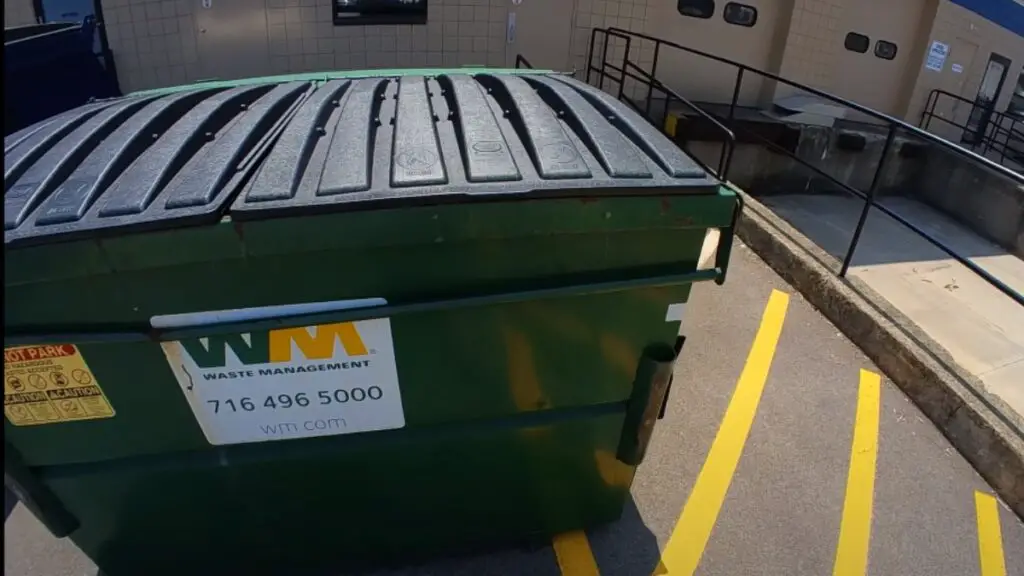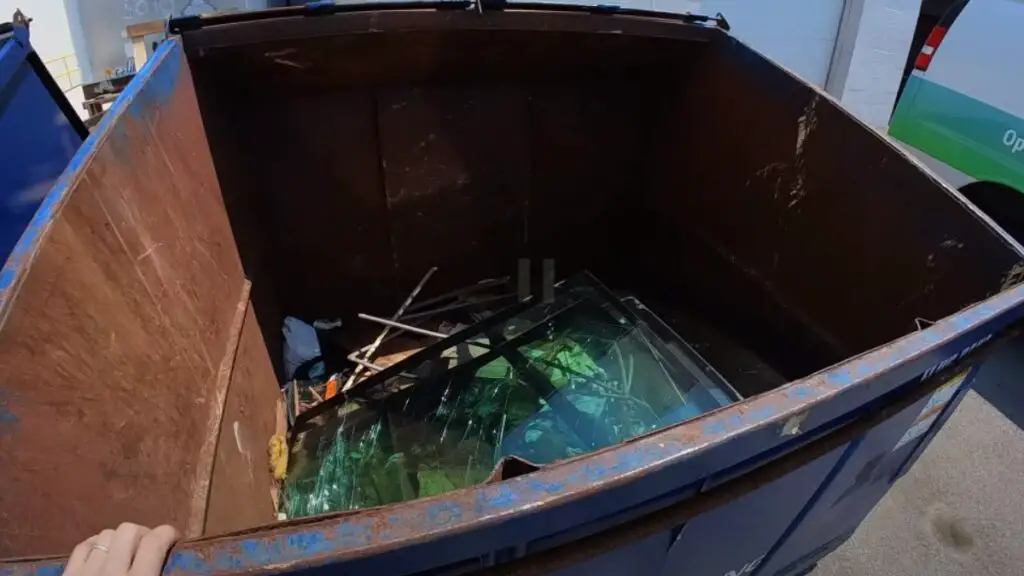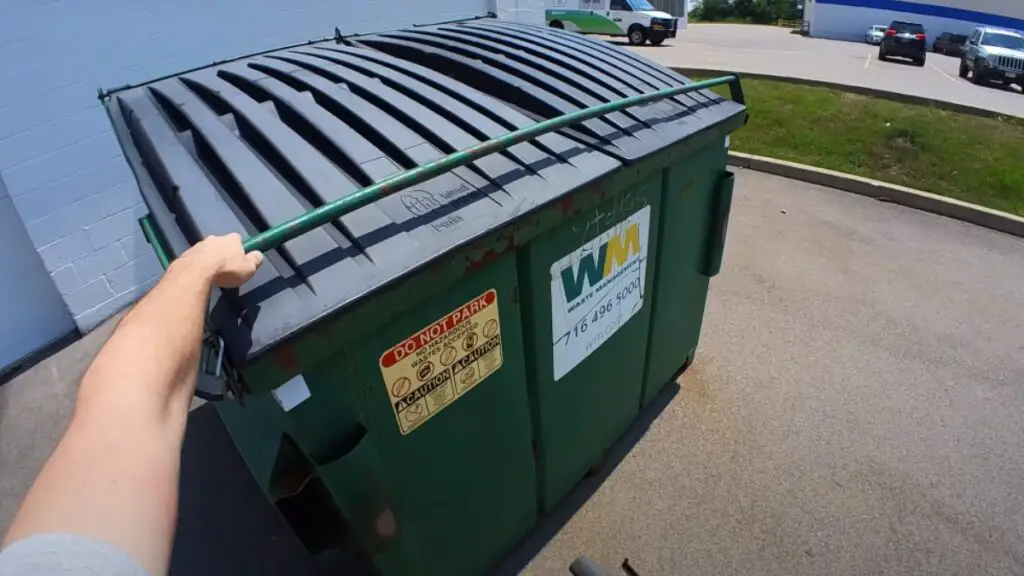Dumpster diving in Illinois has gained popularity as it uncovered hidden treasures and reduced waste.
In Illinois, this activity is not only a pursuit for those looking to save money or live sustainably, but it has also become a community-driven effort to combat the growing issue of waste.
So, in this article we will discuss whether dumpster diving is illegal in Illinois.
Is Dumpster Diving Illegal In Illinois?

In Illinois, dumpster diving is not explicitly illegal at the state level, but it’s important to note that local ordinances and regulations can vary significantly.
Different cities and municipalities within Illinois may have their own rules regarding the legality of dumpster diving.
For instance, some areas might consider it trespassing or theft to take items from a dumpster, especially if the dumpster is on private property or if there are signs prohibiting such activities.
Businesses and residential complexes can set their own policies.
Therefore, it’s crucial for you interested in dumpster diving in Illinois to familiarize yourself with the specific laws and regulations of the local area to ensure you are not inadvertently breaking any rules.
Is Dumpster Diving Legal In Illinois?
In Illinois, the legality of dumpster diving is not governed by a statewide law but rather depends on local ordinances and regulations.
This means that while dumpster diving may be legal in some cities or towns, it could be prohibited or restricted in others.
For instance, in Chicago, there are ordinances that may interpret dumpster diving as trespassing or theft, especially if the dumpsters are on private property or if there are signs indicating no trespassing.
It’s crucial if you’re interested in dumpster diving in Illinois to check the specific regulations of the municipality you are in.
You should always seek permission from property owners before accessing dumpsters on private property to avoid legal complications.
Where Can You Dumpster Dive In Illinois?
In Illinois, the locations where you can legally engage in dumpster diving vary greatly depending on local laws and regulations.
Generally, public areas where trash is legally discarded and not marked with no trespassing or private property signs are safer bets.
Cities like Springfield and Peoria may have different regulations compared to Chicago, where stricter rules are often in place.
Retail areas, strip malls, and commercial districts sometimes offer fruitful opportunities, but it’s essential to be aware of each area’s specific rules.
Residential areas can be more challenging due to privacy concerns and local ordinances.
It’s always advisable to conduct thorough research or even contact local authorities to understand the legal landscape of dumpster diving in a specific Illinois location.
So, if you are planning to dumpster dive at Maryland, Dollar General, or Tennessee; you should check these state laws before going to your hunt.
Dumpster Diving Laws In Illinois?
In Illinois, dumpster diving laws are not governed by a uniform state policy but are instead subject to local municipal ordinances.
This means the legality of dumpster diving can vary significantly from one city or town to another.
For example, in some areas, it might be considered legal as long as the dumpster is on public property and there are no local laws against it.
However, in other places, such as Chicago, dumpster diving could be interpreted as trespassing or theft, particularly if the dumpster is located on private property or if there are signs prohibiting trespassing.
It’s important if you’re interested in dumpster diving in Illinois to be aware of and comply with these local regulations.
You should always respect private property and avoid dumpsters that are locked, enclosed, or clearly marked with no trespassing or private property signs.
To ensure compliance with the law, it’s advisable to research the specific regulations in the area or contact local authorities for guidance.
How To Dumpster Dive Legally?
To dumpster dive legally, it’s crucial to first familiarize yourself with the local laws and regulations governing this activity in your area, as these can vary significantly from one municipality to another.
Always ensure that you are not trespassing on private property; seeking permission from property owners or managers is a wise step.
Avoid dumpsters that are locked, enclosed, or clearly marked with no trespassing or private property signs, as accessing these could be considered illegal.
It’s also important to be respectful of the area: avoid making a mess and be mindful not to disturb the peace of the neighbourhood.
In some places, you may need to check if there are specific times or days when dumpster diving is permitted.
What Happens If You Get Caught Dumpster Diving?
If you get caught dumpster diving, the consequences can vary depending on the location and the specific circumstances.
In areas where dumpster diving is illegal or falls into a legal grey area, you could potentially face trespassing charges, especially if you are on private property without permission.
The severity of these charges can range from a warning or a citation to more serious legal repercussions like fines or even arrest, depending on the local laws.
In some cases, property owners or managers might simply ask you to leave the premises.
It’s also possible to encounter confrontations with employees or residents who may view dumpster diving as a nuisance or security concern.
To mitigate these risks, it’s important to always be aware of and comply with local laws, avoid diving in restricted areas, and be respectful and non-confrontational if approached or questioned.
Is It Legal To Dumpster Dive Behind Stores?
The legality of dumpster diving behind stores varies based on local laws and ordinances, which can differ significantly from one area to another.
In some places, it may be legal to search through dumpsters on public property, but dumpsters located on private property, such as behind retail stores, often fall under different rules.
Many stores consider their dumpsters private property, and accessing them without permission could be construed as trespassing.
Some stores have policies against dumpster diving and may post signs or lock their dumpsters to enforce this.
If you’re considering dumpster diving behind stores, it’s important to first research the local laws and regulations in your area.
If possible, obtaining explicit permission from the store management can help avoid legal issues.
Always respect property boundaries, and if a dumpster is locked, enclosed, or clearly marked with no trespassing or private property signs, it’s best to steer clear to avoid potential legal complications.

Frederick Perez is the founder of Scrape Dude. He loves exploring and finding hidden treasures in unexpected places. Frederick has been dumpster diving and gold panning for years, turning his hobby into our website to share his adventures. He’s known for his friendly advice and exciting stories, inspiring others to discover the joy in these unique hobbies. His expertise makes Scrape Dude a trusted and fun place to learn and explore.


